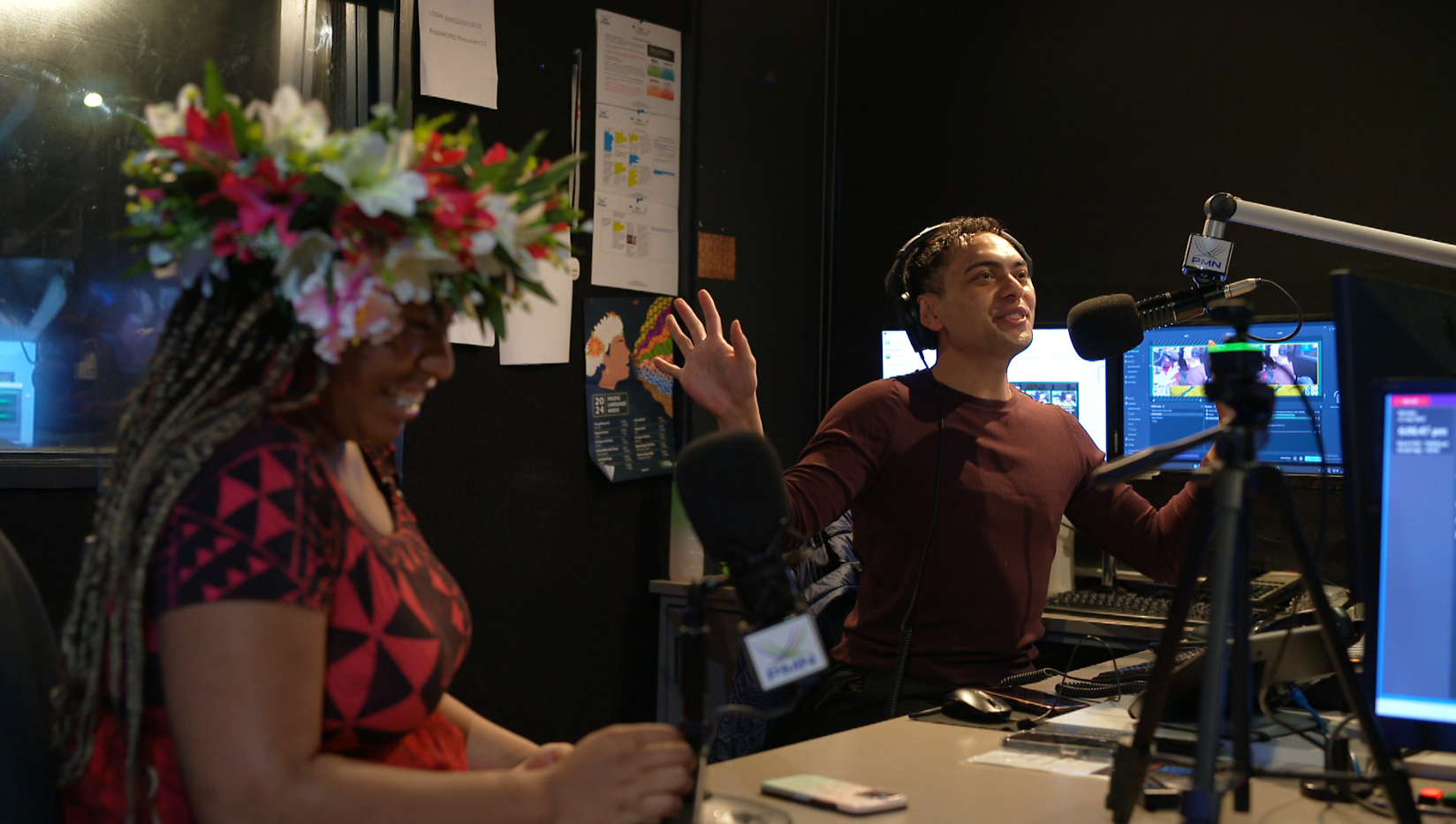On the eve of Cook Islands language week, young community broadcasters speak on the challenges of reaching that youth audience.
On a Monday night in Manukau a team of dedicated broadcasters converge on the Pacific Media Network for a night of community contact.
They provide the Cook Islands language programme which runs from 3pm in the afternoon until 6am the next morning.
Under the guidance of Producer Tauraki Rongo, the show starts with a youth focus before climbing into news and community programming for older listeners right through until the early hours of the morning where, more often than not, it’s producer Rongo burning the midnight oil.

For Rongo, the programme is not just a tool for the promotion of Cook Islands Maori, it’s also a way of keeping the wider community in Aotearoa connected with each other, especially young people.
“When you look at our communities now, they’re broken up and this is why I look at the radio as a platform to help reunite our people,” he says.
And it’s a theme younger members of the team recognise as well. Coming to the show, not just with their enthusiasm and perspective but also a confidence to continue, despite not being fluent in Te Reo.
For presenter Ernestina Bonsu-Maro, it doesn’t have to be a barrier to participate in the language.
“I’m not a 100% full speaker but having a platform like this helps bring that demographic that we, which is our youth, to be completely honest, into the space to help them learn just the basics but also breaking that barrier.”
For many young people, giving ‘te reo’ a go can be a fraught experience especially under the gaze and scrutiny of their more fluent elders, says presenter Susnation Seta.

“The number one feedback that we’ve gotten in regards to the journey or them wanting to know more is, ‘ka kata aviri au kia ratou’, you know they will get made fun of, like they’ll be mocked by the older generation,” he says.
“You know, we ‘muck’ up a few words here and there. We mispronounce it. And for them to see that and for them to be able to say, oh, my gosh, if they can do it, you know, what’s holding us back from making these mistakes?”
Less than seven percent of Cook Islanders under the age of 15 speak Cook Islands Maori, so allowing the youth show to be presented in both English and Te Reo was not a decision that was taken lightly. For producer Rongo, it was more important to engage them than restrict their input.
“Tetai au pupu i rotopu ia matou (some of us here), kare mako meitaki ite reo Maori (are not fluent speakers) but te pukuatu (heart), is there. You know, they were born here,” Rongo says.

“The whole idea here is, ‘e akamaroiroi ia ratou’ (to encourage them), and plus they have the connections i to tatou Mapu aere (to our youth), to bring them on board.”
And the young presenters say their audience is crying out for that connection with their language and culture and often express themselves on social media.
“You see it on TikTok, they’re dancing, like Tautape Samson. He is a prime example of how he makes the culture fun, unique, happy,” Bonsu-Maro says.
“I think with our ‘uki’ (generation) today, it’s not so much of, oh, they’re not interested, it’s really connecting. And I feel like back, when we look back through migration times, seventies, eighties, I feel like we were more connected.”
Co-presenter Seta says he’d like community elders to be more understanding towards young people trying but making mistakes while speaking. “Eia’a tataou e riri vove” (let’s not be quick to anger), he says.
Cook Islands language week runs from August 4 until the 10th and the theme this year is ‘Atui’ia au ki te vaka o tōku matakeinanga – connect me to the canoe of my tribe’.













